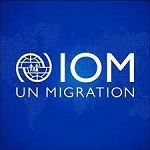
IOM has been implementing a two-year skills development project for the returning migrant workers who were affected due to Covid-19 pandemic and returned to Bangladesh which rendered them jobless. The project also supported the vulnerable host community women in Cox’s Bazar, Bangladesh and provided skills development training to become empowered and add economic contribution to their family. The project is funded by IOM Development Fund (IDF).
Evaluation context
The project aims to ease unemployment through equipping beneficiaries with the training and knowledge to develop the skills of their communities to better meet the employment demands of the labour market and/or to invest in self-employment opportunities. This will be achieved through a skills profiling of selected unemployed community members and returning migrant workers and the development and delivery of a series of targeted livelihood diversification training modules based on the findings of the skills profile assessment. The beneficiaries are the returning migrants who had to lose their jobs during Covid-19 and came back to the country rendering them unemployed. Also, the project targeted vulnerable women beneficiaries across the Cox’s Bazar district who are willing to contribute on their family through economic improvement. Total of 206 beneficiaries will be directly benefited under the project. Skills development and vocational training will help to reduce poverty and improve social cohesion by providing unemployed and underemployed individuals with lifelong skills to build better futures for themselves, their families, and their communities.
While the program life cycle is about to complete, a final evaluation is anticipated to understand the impact of the project which will also guide the future initiatives to achieve sustainable results. Throughout the TOR, the term “Evaluator” refers to both an individual and/or a team.
Evaluation purpose
The main objective is to evaluate the project’s performance against the desired results as articulated in the project’s results framework. Further, the objective is to understand the impact and outcomes of the resources and interventions implemented. It will also help to assess the relevance and accountability of the project to the intended beneficiaries. The final evaluation will provide results to support management decisions on intended improvements, learnings and lessons learned to ensure the sustainability of future activities.
Recommendations will be used to improve the program processes as well as the anticipated results in the most sustainable, effective, relevant, and efficient manner. Recommendations will also be used for future programme design.
The evaluation specific objectives aim to:
- Assess to what extent the project realized the outputs, outcomes, and objectives as expressed in the project documents.
- Assess the project’s overall performance from planning, implementation, and knowledge management by identifying the key strengths and areas of gaps and providing necessary recommendations for future improvement.
- Identify impacts of the interventions (skills development and inputs support) and document lessons-learned, innovations, and best practices resulting for future strategies and interventions.
- Understand better what the project has achieved in relation to gender and disability mainstreaming and overall results.
- Support the use of relevant and timely contributions to organizational learning, informed decision-making processes resulting from the analysis, conclusions, or recommendations as well as and accountability for results.
Evaluation scope
The evaluation will look at the project objective; “To contribute to strengthening economic resilience and improving returning migrant workers and vulnerable community’s self-sufficiency through skills development and livelihood diversification in Cox’s Bazar” and focus on the two outcomes of the project which was implemented from February 2021 to January 2023.
- Government, civil society actors and the private sector actively to respond to employability challenges faced by returning migrant workers and vulnerable members of the host community in Cox’s Bazar
Under this outcome, the project developed gender responsive skills need assessment tool to identify the targeted beneficiaries and share the list the identified returning migrants with the Government in a digital format to identify and support the affected returning migrants under various government safety net programs. The project also identified four skills development trades under the program and developed training modules, and contents to deliver the trainings.
- Returning migrant workers and vulnerable members of the host community acquire necessary skills to achieve employment or self-employment
Under this outcome, the identified beneficiaries received training on the identified trades and equipped with relevant items to start their economic activity. Further, a batch of Training of Trainers are also developed under the project. The project also delivered necessary tools to the government to continue training beneficiaries in skills development and livelihoods diversification.
While looking at the project outcomes, the evaluation will answer the following relevant indicators:
- % of increase in self-employability/employability of returnees through skills development
- % of targeted beneficiaries who reach 0.5 scores in the economic dimension of reintegration (disaggregated by age and sex, at least 50% women)
- % of targeted beneficiaries who report having accessed employment/self-employment opportunities by the end of the project due to skills acquired through the trainings. (Disaggregated by age and sex)
- % of beneficiaries reporting increased knowledge and ability to apply acquired skills upon completion of the training (disaggregated by age and sex)
- % of beneficiaries expressing satisfaction accessing follow up services (disaggregated by age and sex)
- % of beneficiaries reporting increased incomes after accessing follow up services (disaggregated by age, sex, and employment opportunities)
Evaluation criteria
Program performance will be evaluated according to the Organisation for Economic Co-operation and Development/ Development Assistance Committees (OECD/DAC) evaluation quality standards based on the criteria of relevance, effectiveness, efficiency, impact, and sustainability. Due to the nature of final evaluation, impact and sustainability would be prioritized including other criteria. These five evaluation criteria form the basis and guidance for the evaluation questions, in addition to cross-cutting issues (gender, environment and climate change).
Evaluation questions
The evaluation shall be on the quality of project performance as per the evaluation criteria described above. The guiding evaluation questions are in Detailed Evaluation Package on below. The evaluation questions are related to the programme processes and delivery strategies based on the seven outcome areas outlined under the evaluation scope in section three. The evaluator is encouraged to identify additional questions to gather adequate data needed and to suggest the best approach.
Evaluation methodologies
Evaluation team: External
The evaluation will be conducted through mixed approaches:
- Review of project documents (proposal, narrative reports, work plans, monitoring data, budget, financial reports, annexes etc.); relevant agency strategies and guidance; relevant projects and documents under the project (home-based, desk study).
- Key in-depth interviews with program staff, Government Authorities (local Government of Cox’s Bazar, Livestock Officer, Agricultural Officer, Social Welfare Officer, Women Affairs Officer, You Development Officer), implementing partners, local NGOs/ CSOs, co-partners, Chamber of Commerce
- Quantitative and qualitative data collection and analysis.
- Project implementation process observation at selected sites.
The evaluator is expected to provide a reviewed description of the methodology in the proposal, as well as a detailed methodology in the inception report. The evaluation must follow the IOM Data Protection Principles, UNEG norms and standards for evaluations, and relevant ethical guidelines.
Evaluation deliverables
The evaluator is expected to produce: (1) Work plan and inception report/plan per the IOM template (will be shared later) including the tools/materials/templates. (2) Briefing and debriefing meetings in addition to the routine meetings and discussions with the M&E officer, programme manager/ project team, project focal points and management. (3) A presentation of the initial/ preliminary findings and a final draft report outlining the lessons-learned and recommendations. (4) A final report with a summary of the evaluation brief (2-pager evaluation brief per IOM template- will be shared later) – clearly describing concrete steps which will include an approach on how the project (as outlined under the evaluation scope) was implemented. (5) A Final PowerPoint Presentation with key result for future use/ reference.
Final Report (report body 30 pages maximum) including an Executive Summary, approach, and methodology, with gender equality addressed throughout. Final report should annex the complete database of findings, survey records, questions, and answers.
Evaluation workplan
The total assignment is for 6 weeks. It is expected to start the evaluation as soon as signing the contract with IOM for this assignment. The draft report should be submitted by the end of 4th week after signing the contract. IOM will review the report in the 5th week and send back the report to the evaluator. The evaluator will prepare the final report based on the comments and submit the final report with presentation for endorsement within 6th week. The evaluator will directly work with the National Monitoring, Evaluation & Reporting Officer under the Social Cohesion Division, IOM with the programmatic support from relevant colleagues.
Intellectual property rights
The information collected, and the resulting findings shall be the property of IOM and shall not be disclosed or revealed to any third party without expresses written permission of IOM. The evaluator shall not, either during the term or after termination of the assignment, disclose any proprietary or confidential information related to the evaluation without prior written consent. Proprietary interests on all materials and documents prepared by the evaluator under the assignment shall become and remain the property of IOM.
Data collected for the study is the property of IOM. Any intentional fabrication of data would be considered fraudulent, and IOM holds the right to act against that.
How to apply
Expression of interest
Submitted proposals will include proposed methodology for the assessment including timeline, the curriculum vitae of key team members, an itemized budget for all relevant costs, at least two samples of previous relevant surveys/ assessments/ evaluations, and three references. Potential conflict of interest should be declared. IOM reserves the right not to accept any proposal submitted.
Please click the link below for details and application procedures.
https://bangladesh.iom.int/sites/g/files/tmzbdl1006/files/Bidding%20Documents.zip
Alternatively, you may navigate to IOM Bangladesh Procurement website and click the appropriate link
